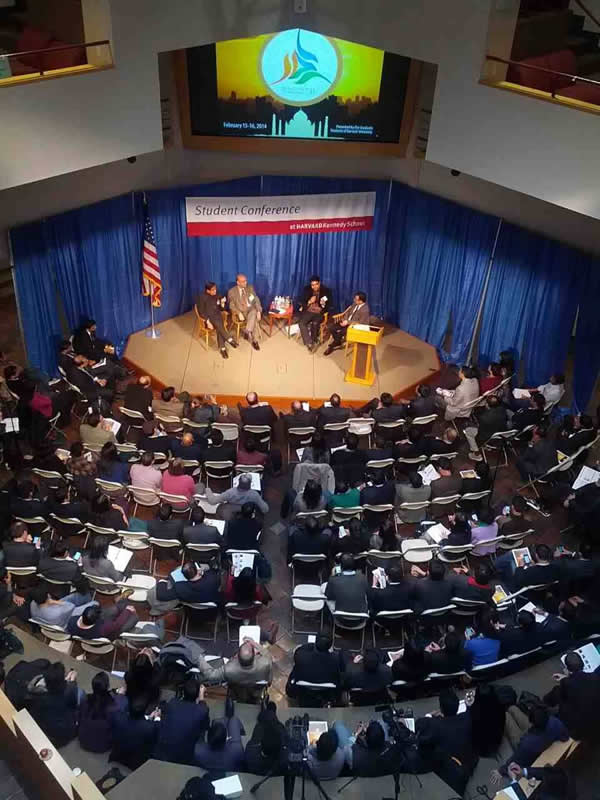 India has for long promised to be the next breakout nation after China, but has it actually delivered? What are the reasons that preventing the country from reaching its potential and how should it move forward? These and many other critical questions facing business and public policy leaders of the 1.2Billion strong nation were discussed at the annual India Conference at Harvard held at HBS and HKS on 15th and 16th February 2014. The conference, now in its 12th year, has become the largest student run India focus conference in the US. This year’s conference was the largest in history with over 100 speakers and 650 attendees. On the day of a snowstorm, we were heartened to see participation from all across the US and India.
India has for long promised to be the next breakout nation after China, but has it actually delivered? What are the reasons that preventing the country from reaching its potential and how should it move forward? These and many other critical questions facing business and public policy leaders of the 1.2Billion strong nation were discussed at the annual India Conference at Harvard held at HBS and HKS on 15th and 16th February 2014. The conference, now in its 12th year, has become the largest student run India focus conference in the US. This year’s conference was the largest in history with over 100 speakers and 650 attendees. On the day of a snowstorm, we were heartened to see participation from all across the US and India.
The discussions at the conference covered a wide range of topics, from individual sectors like retail and social enterprise to broader business level issues like ethics and leadership. The speakers were as diverse as the nation itself with the former Chief of Indian Army talking about his leadership lessons while a social entrepreneur spoke about his experiences creating a low cost sanitary pad for women. 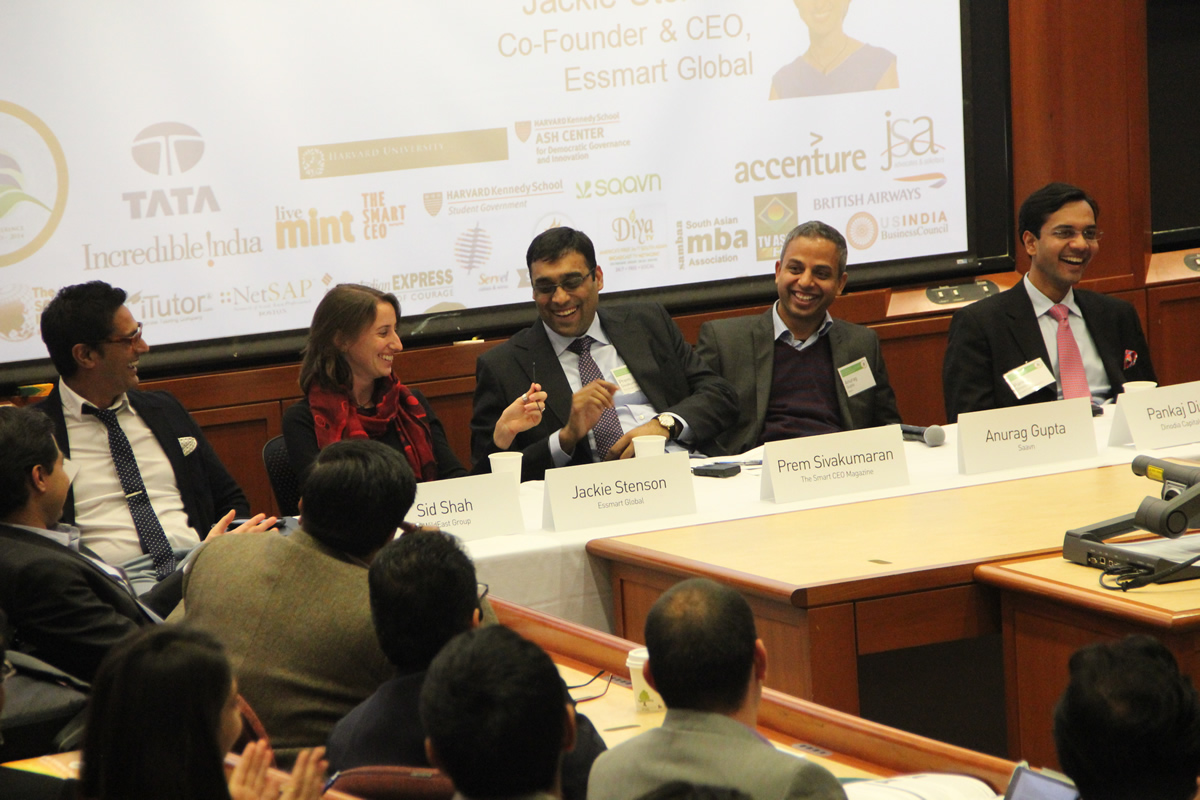 The conference also saw good representation from many leaders of Indian industry ranging from the senior-most leadership of India’s biggest CPG Company to some of the leading names in the Indian VC world. The second day at the Kennedy school offered the chance for the policy wonks and election enthusiasts to engage with some of the sharpest minds in Indian politics.
The conference also saw good representation from many leaders of Indian industry ranging from the senior-most leadership of India’s biggest CPG Company to some of the leading names in the Indian VC world. The second day at the Kennedy school offered the chance for the policy wonks and election enthusiasts to engage with some of the sharpest minds in Indian politics.
For HBS students looking for career opportunities in India, this was a rare chance to meet and interact with many senior leaders of Indian industry in a relaxed setting. The networking events organized aro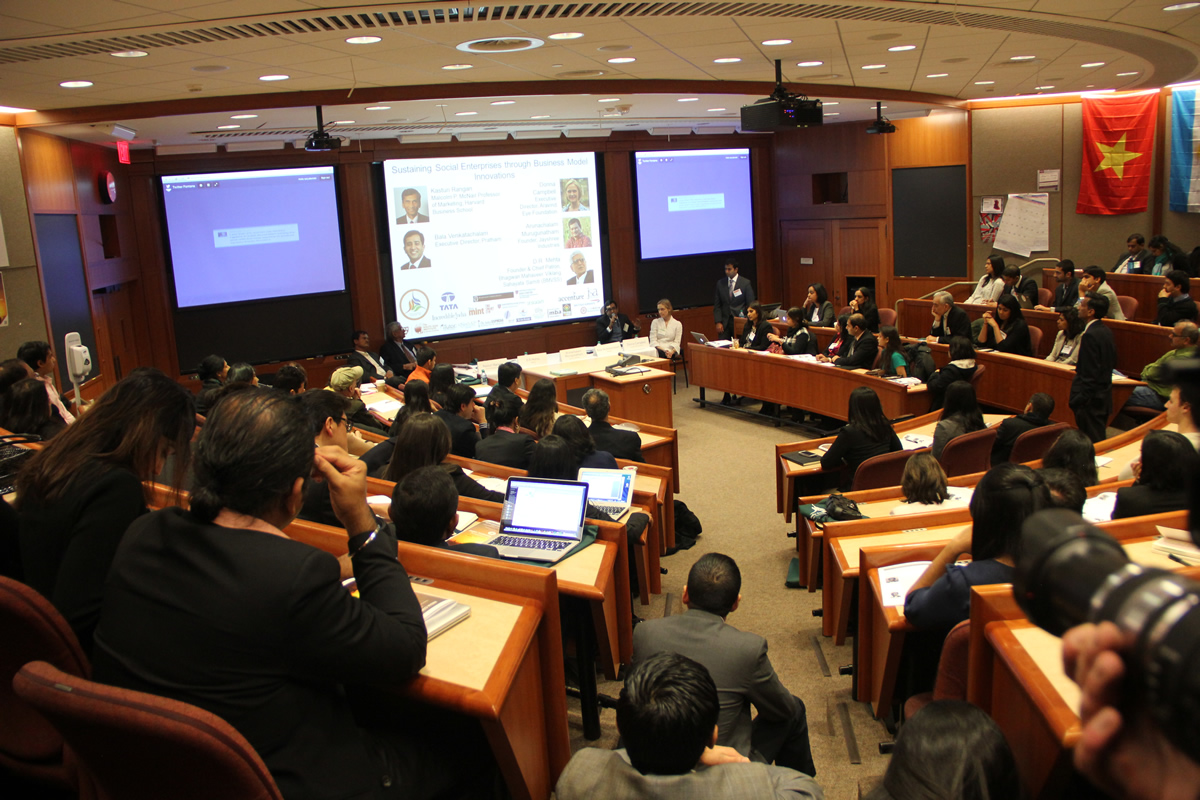 und lunch offered the attendees opportunity to interact with the speakers in greater detail. Some would be entrepreneurs were spotted pitching ideas while others were spotted convincing potential employers about their belief in the India story. Attendees were also given the option of including their resume’s in the Conference resume book, which has historically been in heavy demand with sponsors and
und lunch offered the attendees opportunity to interact with the speakers in greater detail. Some would be entrepreneurs were spotted pitching ideas while others were spotted convincing potential employers about their belief in the India story. Attendees were also given the option of including their resume’s in the Conference resume book, which has historically been in heavy demand with sponsors and 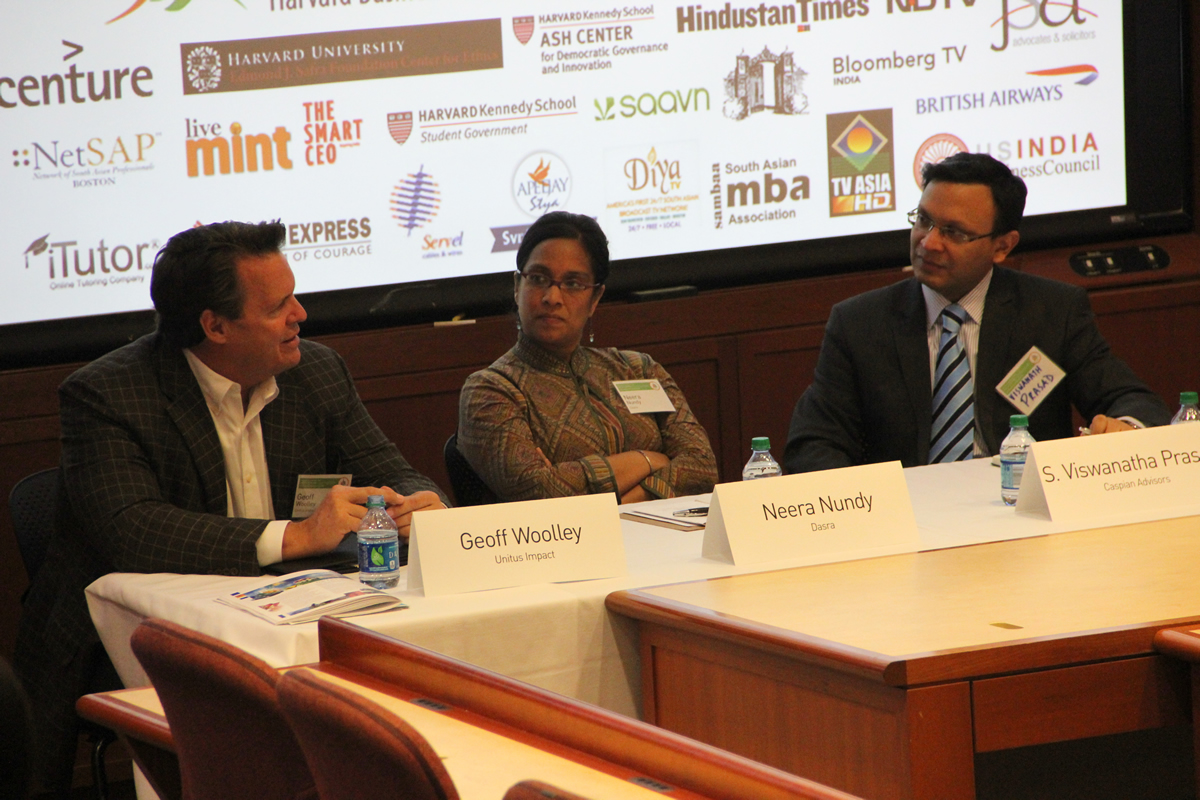 speakers.
speakers.
Overall, the conference ended on a balanced note of cautious optimism. While many argued that, given the current situation, the country has no way to go but up, other advised prudence and caution. But the belief in India remains strong and everybody came away from the conference looking at the challenges and opportunities facing the country in a new light.
- Abhishek Shrivastava, MBA ’14 & Shawn Tuli, MBA ’14, South Asian Business Association (SABA) Co-Presidents
For more information on the conference check out:

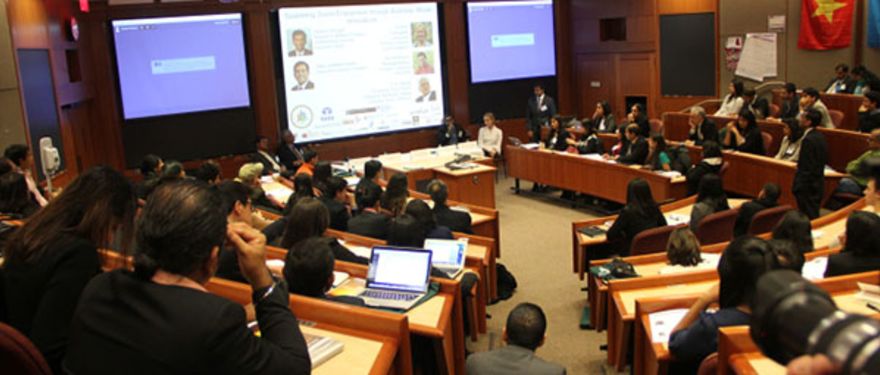

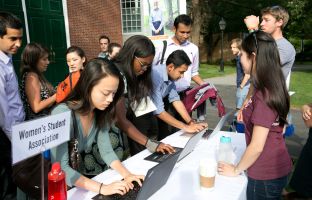
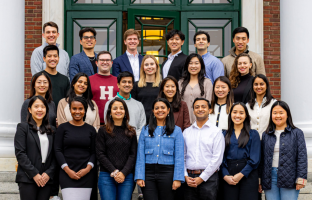


.png&w=80&h=80)